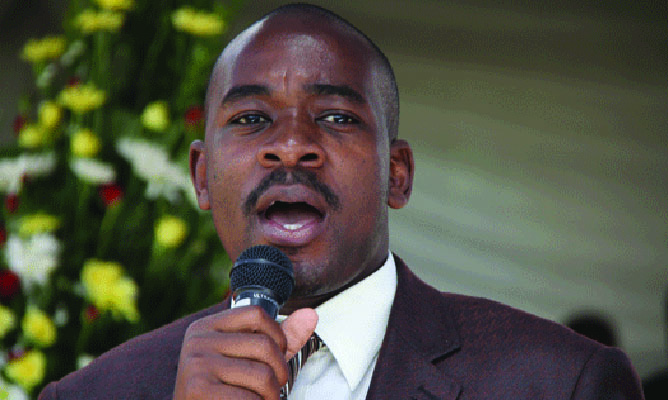
Last week on Thursday and Friday saw the National Assembly failing to raise a quorum to debate a motion moved by Kuwadzana East Member of Parliament Nelson Chamisa (MDC-T) pertaining to the disappearance of civil society activist, Itai Dzamara. The majority of MDC and Zanu PF members simply decided not to pitch up for the debate despite the issue qualifying under motions of urgent public importance.
John Makamure
Chamisa had moved the motion in line with Standing Order Number 30. Under the Standing Order, a member may seek permission of the House to introduce a motion to discuss an issue of urgent public importance. Permission will be granted if the Speaker considers it to be in line with the Standing Order, and at least 25 members rise in support of the motion.
The quorum for the motion to be debated is 70 members. This is the same quorum for any other issues before the National Assembly. The bells will be rung for seven minutes if there is an objection raised by a member present that there are fewer than 70 members. Failure to muster a quorum after seven minutes will result in the Speaker adjourning the House until the next sitting day.
This is exactly what happened on Thursday when business was adjourned to the next day on Friday. While Friday is a sitting day, it is rare that the House sits on that day. Only 37 members were present in the House on Friday, leaving the Speaker with no choice but to adjourn proceedings to the next sitting day.
The behaviour of MPs is appalling given the huge effort and resources put into arranging for the House to sit. Surely, we cannot afford to waste resources at a time we should be mobilising funding to purchase adequate grain and feed the starving nation. The electorate expects the MPs to take Parliament business seriously and address a myriad of social and economic challenges bedevilling the nation.
What happened last week will only fuel negative public sentiment about lawmakers. People will never trust MPs to fully represent their interests when they cannot set aside time to attend plenary and committee meetings in order to discharge their constitutional mandate of making laws for the peace, order and good governance of Zimbabwe and overseeing the formulation and implementation of public policies.
- Chamisa under fire over US$120K donation
- Mavhunga puts DeMbare into Chibuku quarterfinals
- Pension funds bet on Cabora Bassa oilfields
- Councils defy govt fire tender directive
Keep Reading
An issue of urgent public importance means exactly that. One cannot, therefore, ignore such an issue. It does not matter that one has a contrary view. You are still expected to attend plenary sessions and participate in the debate.
My strong view is that the Constitution and Standing Orders are not punitive enough when it comes to attending Parliament business. The rules must make it mandatory for members to attend if issues of urgent public importance are on the agenda.
The Constitution is generous to MPs than ministers when it comes to attendance. Section 107 of the Constitution makes it mandatory for every Vice-President, Minister and Deputy Minister to attend Parliament and parliamentary committees in order to answer questions concerning matters for which he or she is collectively or individually responsible. Failure to do so can result in the vice presidents, ministers or deputy ministers facing contempt of Parliament charges.
Provisions along the same lines must compel MPs to attend Parliament business.
Those who do not attend Parliament business — especially when an issue of urgent public importance is on the agenda — must lose their seat because they would have failed to play their representative role. The seat of a Member of Parliament only becomes vacant under section 129(f) if the member is absent from the House for 21 consecutive days without permissions from the Speaker if the member belongs to the National Assembly, and the President of the Senate if a member belongs to the Senate.
In any case, being absent from the House for 21 consecutive does not mean the seat automatically becomes vacant. The House concerned must resolve by a vote of at least one-half of its total membership that the seat must become vacant. This is why I strongly believe the provisions are not punitive enough.
Failure to debate a motion of urgent public importance shows a lack of respect for the people of Zimbabwe, from whom the authority to be in Parliament is derived. Respect for the people is one of the founding values and principles of the Constitution. Section 196 (1) explicitly reminds public officers that the authority assigned to them is a public trust that must be exercised in a manner which demonstrates respect for the people and a readiness to serve them than rule them. Basically, this means MPs must be servants of the people that respond positively to issues that have been identified as of urgent public importance.
Members of Parliament have of late been complaining about poor conditions of service. While I am in support of improved conditions of service for MPs, they will not gain public sympathy for their demands if they fail to attend a session of Parliament that is focusing on an issue of urgent public importance.
John Makamure is the Executive Director of the Southern African Parliamentary Support Trust. Feedback: [email protected]












